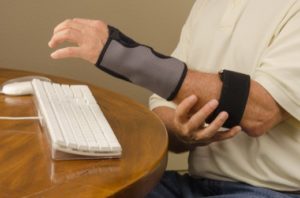
Many workers who are injured while on the job seek workers’ compensation benefits so that they can receive compensation for their medical care and time off from work while they recover. The hope is that the worker will make sufficient recovery to be able to return back to work again soon. Most workers are eager to get back to work, and do make a full recovery, and are able to return to their old job.
Other workers are informed by their treating doctor that they can return to work, but with certain restrictions or limitations on how they are able to do their job. Some injured workers are able to return to work, but only in a lesser capacity, or lower paying position, due to their injury. And for some workers, their injuries are so severe and long-lasting that they are never able to return to work again.
Returning to Your Normal Duties
If you are fortunate enough to be able to make a sufficient recovery so that you are able to return to your job in the same capacity as before your injury, this is a good thing for you. Being able to return to your old job after suffering a work-related injury is the best case scenario for a worker who is injured while on the job, and if this is how your recovery works out for you than you are lucky. Once your treating doctor has indicated that it is okay for you to return to work, you need to notify your employer and/or the workers’ compensation insurance provider, and make arrangements to return to work as soon as possible.
In some situations, an injured worker might still be eligible for workers’ compensation benefits for a period of time after returning to work. For example, if your continued recovery efforts require periodic rehabilitation or other treatment after you are able to return to work, these medical expenses that are related to your workplace injury may be eligible for workers’ compensation benefits to cover these expenses even though you have already returned to work.
For a free legal consultation, call (404) 888-8888
Workers’ Compensation FAQs
My Job Isn’t Providing Guidance on my Work-Related Injury. What Steps Should I Take?Is Pain and Suffering Included in Workers’ Compensation?Will My Employer Find Out if I Hire a Lawyer?How Long Does a Workers’ Compensation (WC) Case Typically Last?What Is the Maximum TTD in Georgia?Can You Go on Vacation While on Workers’ Compensation?Returning to Work With Restrictions or Limitations
There are many instances where workers are cleared to return to work by their doctor, but their treating doctor places restrictions or limitations on a worker’s ability to work. For instance, some common restrictions and limitations include:
- Limited hours, i.e., part-time employment.
- No heavy lifting, or other physical restrictions.
- No repetitive motion activities.
- Worker is required to get up and move around every hour.
- Worker requires certain supportive equipment, e.g., ergonomic keyboard, headrest, back support, etc.
- Worker is limited to light duty work.
Restrictions and limitations are put on injured workers by their doctors to ensure that the injured worker continues to make a recovery, but returns to work as soon as possible. These restrictions or limitations can be retracted by your treating doctor as you become stronger and more capable through your recovery.
Returning to Work, But in a Lower Paying Capacity
There are many situations where a worker is able to make a recovery, even a full recovery, but is still not able to perform his or her former job duties due to the injury. While the worker may be able to work, it is not at the same capacity as before when the injury occurred. If the worker is able to work, but in a lower paying position than before the work-related injury, the worker may be entitled to workers’ compensation benefits up to a weekly cap of $380 for a period of 350 weeks, for injuries occurring on or after July 1, 2016.
Complete a Free Case Evaluation form now
When Your Injuries Are so Serious that You Cannot Return to Work
Some injuries are very serious, and even after making your best recovery you might be forever changed by your injuries. This is more common when a worker suffers a catastrophic injury, or very serious, disabling injuries. When a worker loses a limb, suffers a permanent disability, suffers blindness, paralysis, or some other injury that leaves the worker unable to work in the same way as before the injury, it is considered a catastrophic injury.
In cases where a worker has suffered a catastrophic injury, the injured worker is entitled to two-thirds of his or her weekly wages, up to a cap of $575 in workers’ compensation benefits for the entire duration that the worker is unable to work. The maximum benefit cap was increased on July 1, 2016. Benefits for catastrophic injuries could potentially be paid for the rest of the injured worker’s lifetime.
However, if the worker’s catastrophic injuries only prevent him or her from doing the same type of work as before when the injury happened, the injured worker may be entitled to assistance in finding a new job. In some cases, the injured worker may be eligible to receive training or education to prepare them for a different type of job.
Similarly, if an worker has suffered a catastrophic injury, and can only obtain a job that is a lower paying position, the worker may be entitled to temporary partial disability benefits, and once the temporary partial disability benefits have run out, the worker may begin receiving permanent partial disability benefits.
Whether an injured worker can receive these benefits depends on the exact circumstances. You should speak with a Georgia workers’ compensation lawyer if you would like to learn more about these benefits.
Click to contact our personal injury lawyers today
Contact a Workers’ Compensation Lawyer: Bader Scott Injury Lawyers
If you have questions about returning to work, restrictions or limitations on returning to work, or if you or your treating doctor believe that you will be unable to return to work, you should consult with an experienced Atlanta workers’ compensation attorney.
Workers’ compensation benefits are designed to help injured workers as they make a recovery and then return to work, but some workers will only be able to return to work in a limited or lesser capacity, if they are able to return to work at all. The professionals at Bader Scott Injury Lawyers can assist you with every aspect of your workers’ compensation claim. Contact us today.
Call or text (404) 888-8888 or complete a Free Case Evaluation form


